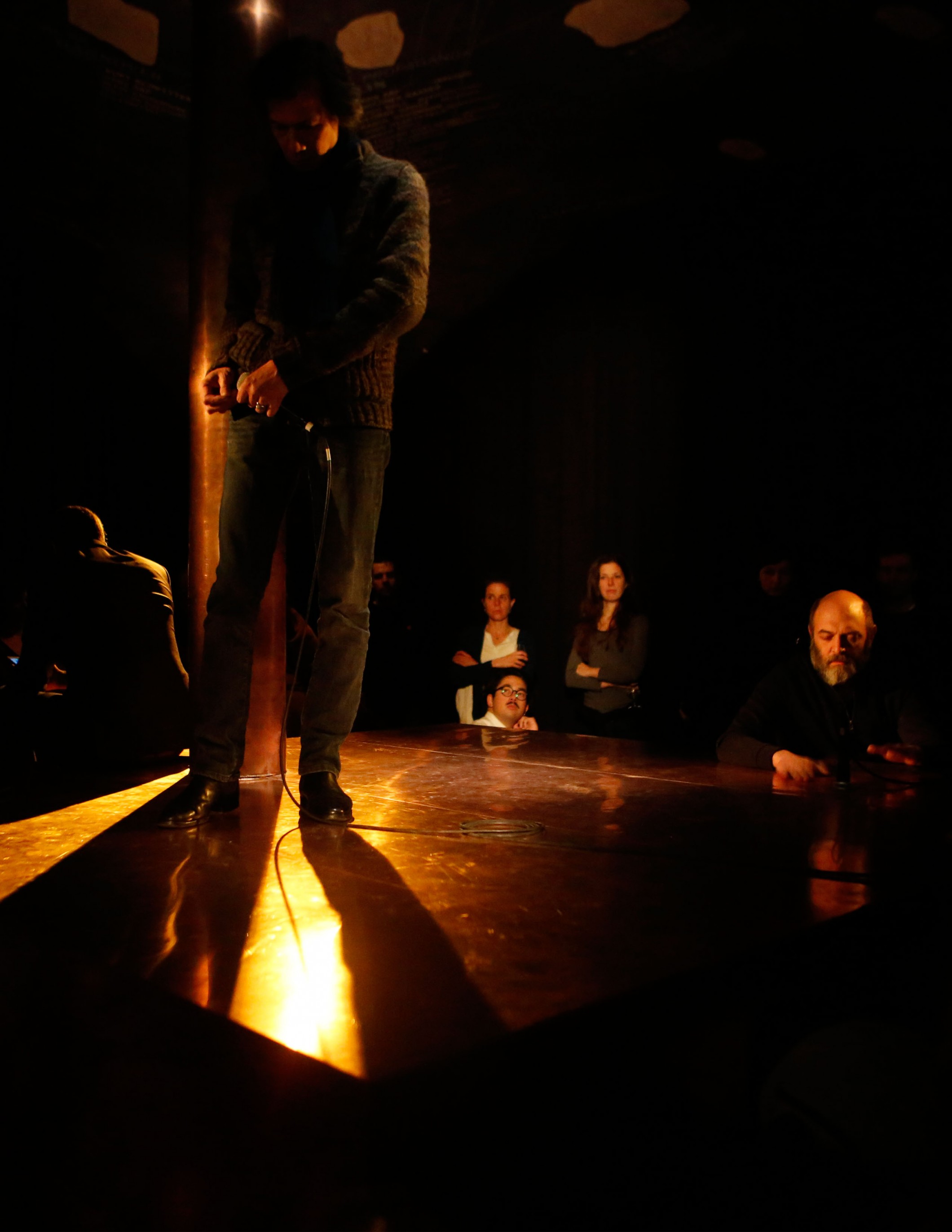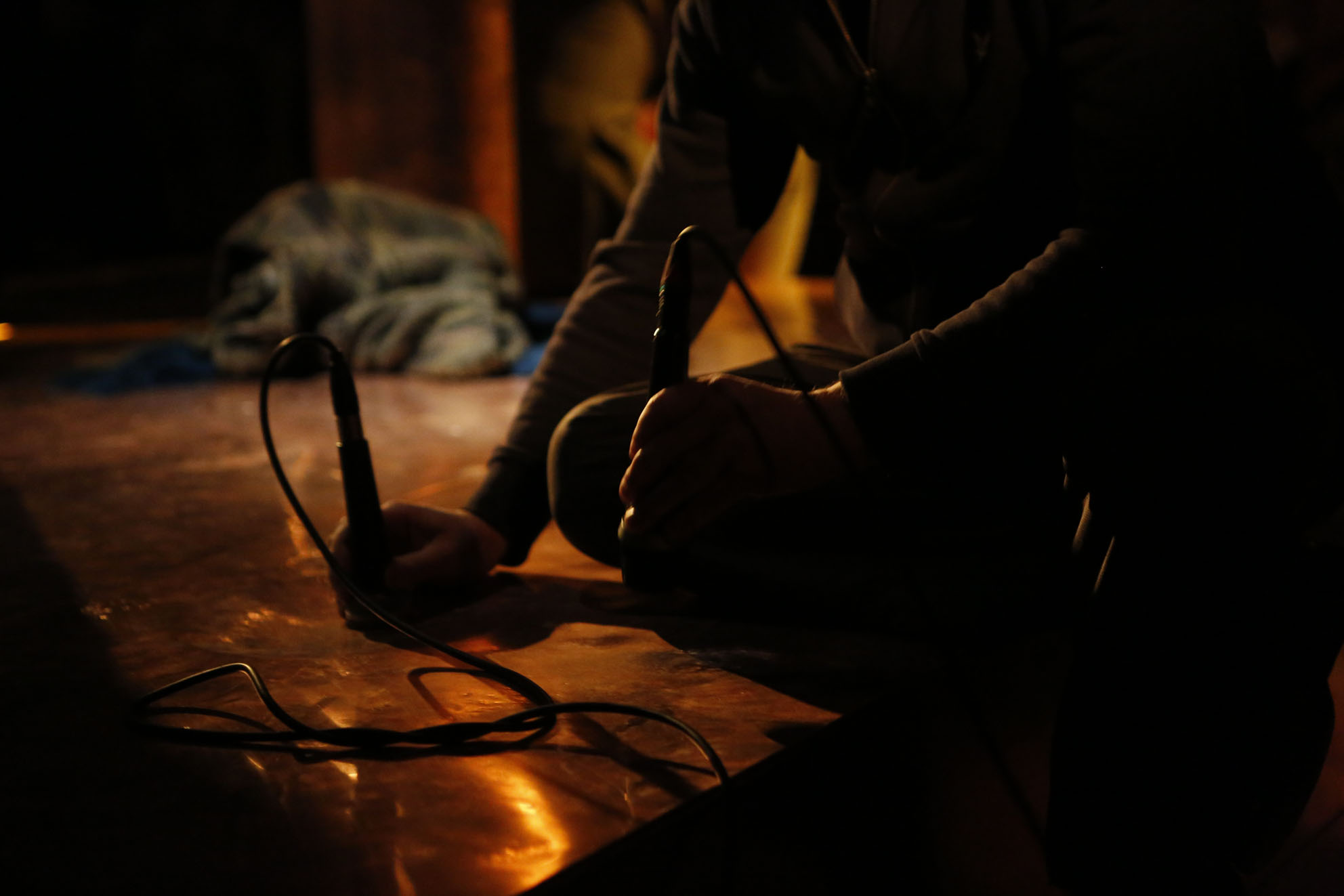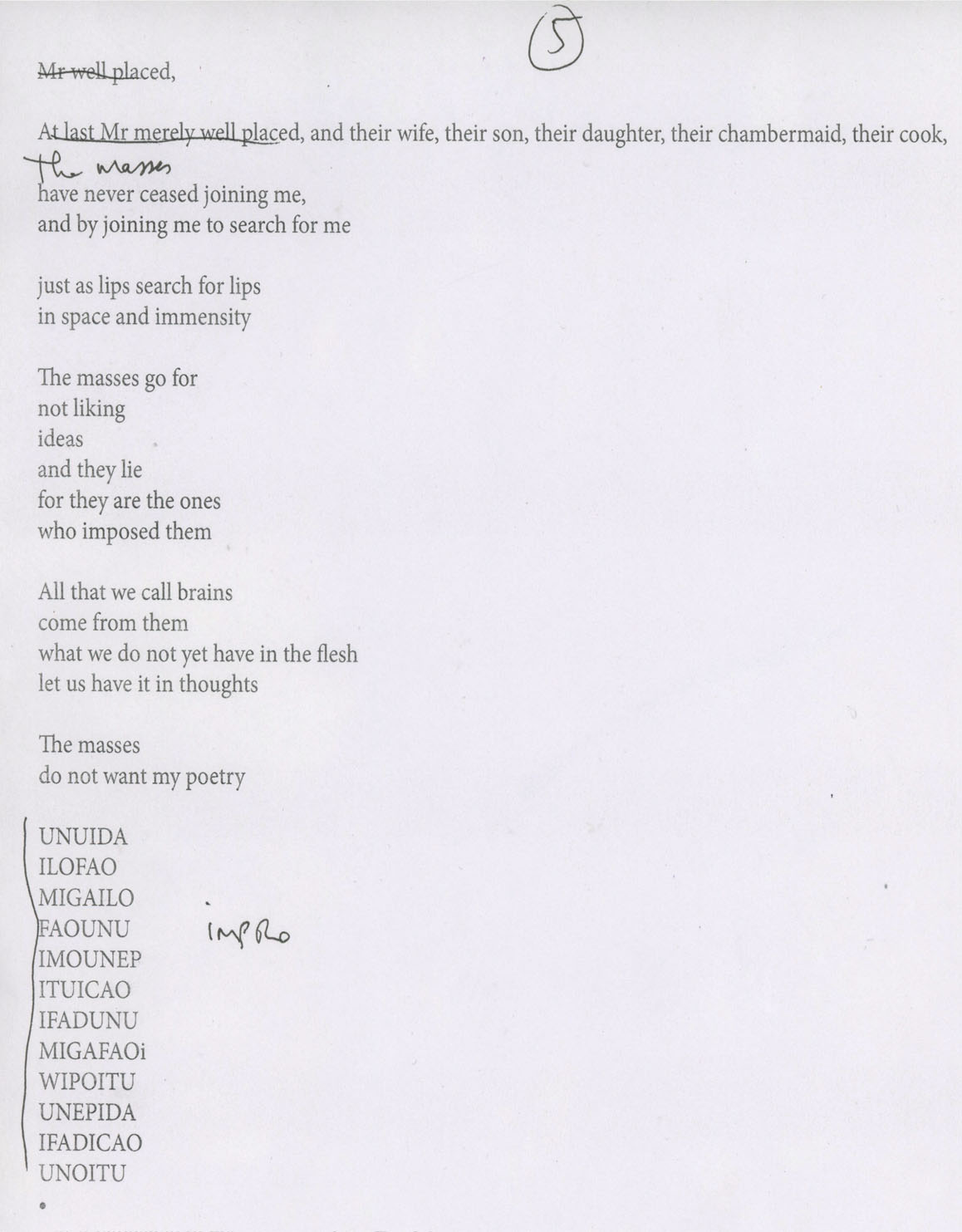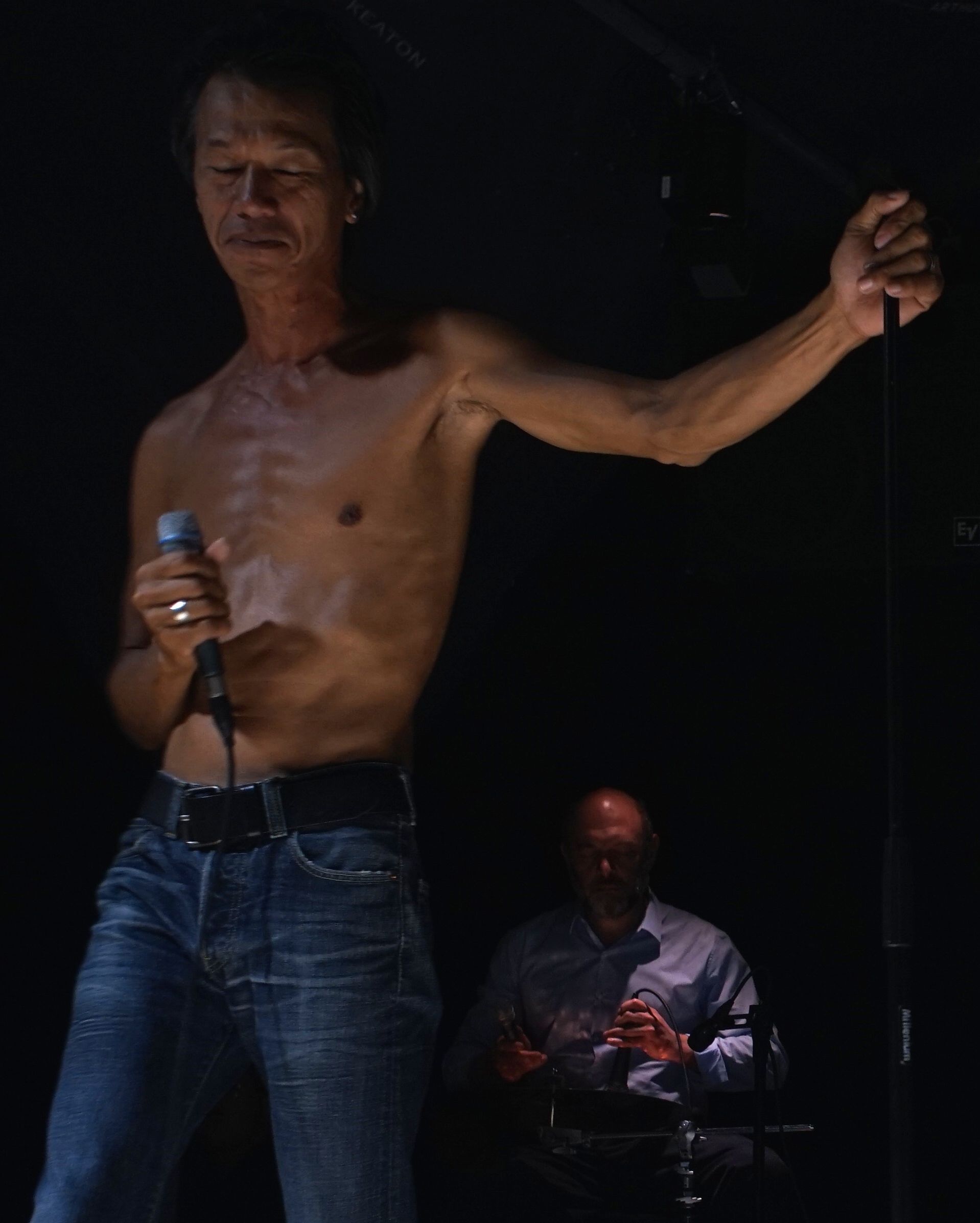Sala10: Carlos Amorales
Interventions of Cyclops in Zurich’s Cabaret Voltaire, 2016-2017
Here we present two video recordings of the interventions of the rock band Cyclops at Zurich’s Cabaret Voltaire, from 2016 and 2017. The first concert was held as part of the celebrations of the centennial of the Dada movement (Dada 100). One year later, the band played five songs based on fragments of a speech by Antonin Artaud, through which they constructed a narrative on individual subjectivity and its subsequent dissolution in the mass. Both films use concerts as a cinematic recourse, in which performance, poetry and music come together to describe the existential exodus of the subject in confrontation with society.
Carlos Amorales

Entering the Darkness
A conversation between Carlos Amorales and Cuauhtémoc Medina
Cuauhtémoc Medina (CM): In 2016, Adrian Notz organized a series of events to celebrate the centennial of Dada at Zurich’s Cabaret Voltaire. I think that, as it did with me, the idea that an entire century had gone by since Emmy Hennings and Hugo Ball created this “center for artistic entertainment,” as they called it in their press releases, must have shocked you. Visiting the ordinary house at Spiegelgasse 1 in Zurich and then walking a block and a half to where Lenin lived during World War I is one of the great pilgrimages for those who feel attracted by the specter of the avant-garde. Nevertheless, I can’t imagine what it would mean to be invited to perform at the very space place where Richard Huelsenbeck, Tristan Tzara, Marcel Janco, Hans Arp and Sophie Taeuber-Arp attempted to take on the weight of this fallen world through their acts, words and guttural sounds.
Carlos Amorales (CA): The opportunity to present a poetic/musical performance at the venue where Dada was born was incredible. I’m amazed that something that happened in such an insignificant space, and that lasted for such a short time, had such enormous repercussions, first on European culture and then on the rest of the world...
COMPLETE CONVERSATION HERE

International Premiere
Carlos Amorales, Cyclops Live at the Cabaret Voltaire [2016], 2018
Video, 27’
Subtitled video of the performance of Cyclops at the Cabaret Voltaire, Zurich on March 25, 2016
Cyclops: Philippe Eustachon, Enrique Arriaga and Carlos Amorales
Special Guest: Adrian Notz
Stage: Una Szeemann
Adaptation of the text based on Antonin Artaud: Elsa-Louise Manceaux and Tania Carrera
Edition: Raquel Peralta
© Carlos Amorales. Courtesy of kurimanzutto, Mexico City

Carlos Amorales, The Masses [Las masas, 2017], 2018
Video, 41’
Video recording of the Cyclops concert at the Cabaret Voltaire, Zurich
Cyclops: Philippe Eustachon, Enrique Arriaga and Carlos Amorales
Adaptation of the text based on Antonin Artaud: Elsa-Louise Manceaux and Tania Carrera
Edition: Raquel Peralta
© Carlos Amorales
Courtesy of kurimanzutto, Mexico City

CARLOS AMORALES
(Mexico, 1970; he lives and works in Mexico City)
Carlos Amorales is a multidisciplinary artist who explores the limits of language and cultural translation systems. He uses graphic production as a tool for developing linguistic structures that give rise to new forms of interpretation and collective models of work. His practice involves a variety of media, such as drawing, painting, sculpture and collage, as well as performance, installation, animation, sound, film and writing, among many other non-traditional formats. The most extensive explorations in his work include Los Amorales (1996-2001), Archivo líquido (1999-2010), Nuevos ricos (2004-2009) and an ongoing typographic project that includes crossovers with film (2013 to date). His many individual exhibitions include Black Cloud, Power Plant, Toronto (2015); El esplendor geométrico, kurimanzutto, Mexico City (2015); Germinal, Museo Tamayo, Mexico City (2013); Nuevos ricos, Kunsthalle Fridericianum, Kassel (2010); Four Animations, Five Drawings and a Plague, Philadelphia Museum of Art (2008); Discarded Spider, Cincinnati Art Center (2008); Axiomas para la acción, MUAC, Mexico City (2018); and The Factory, Stedelijk Museum, Amsterdam (2019).


